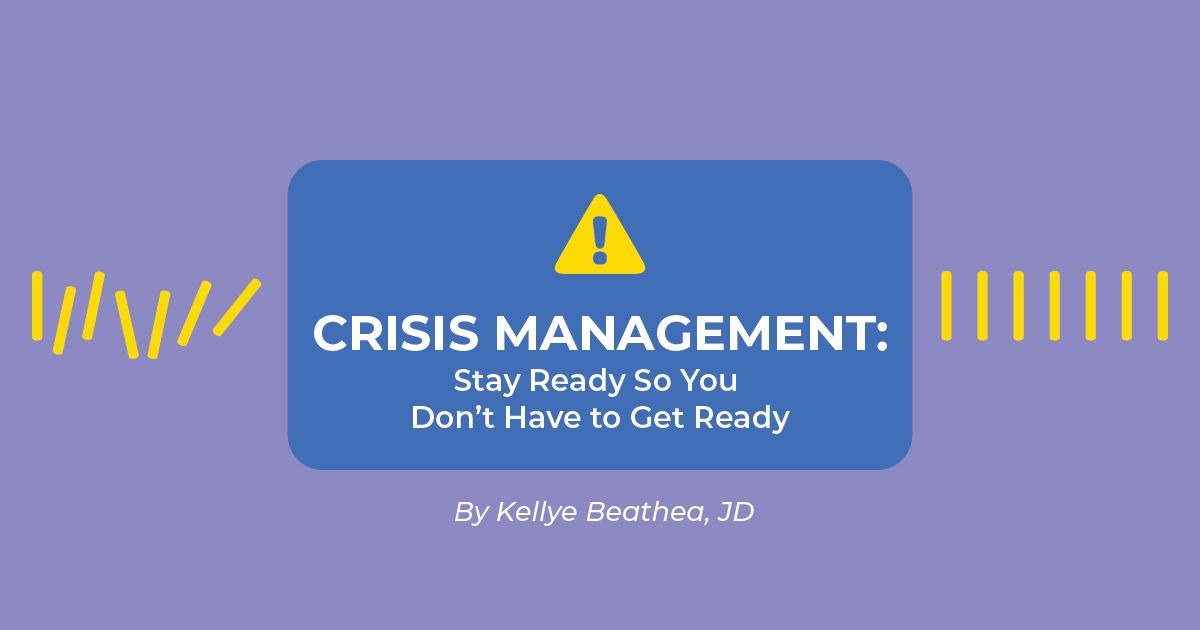Let’s face it: communications work and crisis management (unfortunately) go hand-in-hand. Whether the crisis is as small as a glitch in the server of a small business, or as big as Southwest Airlines canceling over 2,000 flights in 3 days, at some point in your career, you’ll have to deal with a crisis.
The key to crisis management is to prepare ahead of time as best you can. It’s critically important that you not only recognize a potential threat, but also anticipate it. As the saying goes, stay ready so you don’t have to get ready.
Preparing ahead of time includes going through crisis scenarios. How would you respond if a disgruntled customer posted a defamatory review of your brand on Yelp? What’s the plan for when an investigative reporter finds out that your client paid for your services using stolen money? Mapping out a plan for crises such as these and others ensures that you and your team can quickly and effectively communicate with each other during a threat, rectify the situation, and continue business as usual. More importantly, it’s an opportunity for you and your team to be proactive in getting ahead of potential crises.
In addition to preparedness, crisis communication should be in real time so that team members and other stakeholders have access to the most current information as the emergency unfolds. But speed is not the only step to effective crisis management; more important than timeliness, it’s imperative that when you respond to a situation, the information you provide must be accurate.
When preparing an accurate, timely response, consider the following:
- Commit to transparency. Share information as you receive it.
- Acknowledge the situation as directly as possible. To address the crisis in some vague way implies that you have something to hide. Just address it head-on.
- Acknowledge the impact of the crisis and those most affected by it. If something you did directly hurt or offended people, acknowledge that.
- If the crisis calls for an investigation, commit to investigating the matter and mean it. Don’t just say something for the sake of political correctness or because you think it is the right thing to say. Whatever you say you’re going to do, DO IT.
Once you have responded to a crisis, it’s not enough to issue a simple apology for any wrongdoing. Actions speak louder than words: you must prioritize convincing people that your organization is still worthy of their support and their trust. You won’t be able to rebuild trust amongst your base if you cannot provide assurances that the mistake or the crisis was an exception and not the rule.
Remember: a crisis doesn’t have to completely stop “business as usual.” If you have a good crisis management team and plan, “business as usual” can resume relatively quickly. Being proactive in crafting a crisis communication response is the best line of defense you can provide to your company.
But above all else, remember to breathe. You’ll get through this!
Need help developing a proactive crisis communications plan? Contact LMD.
